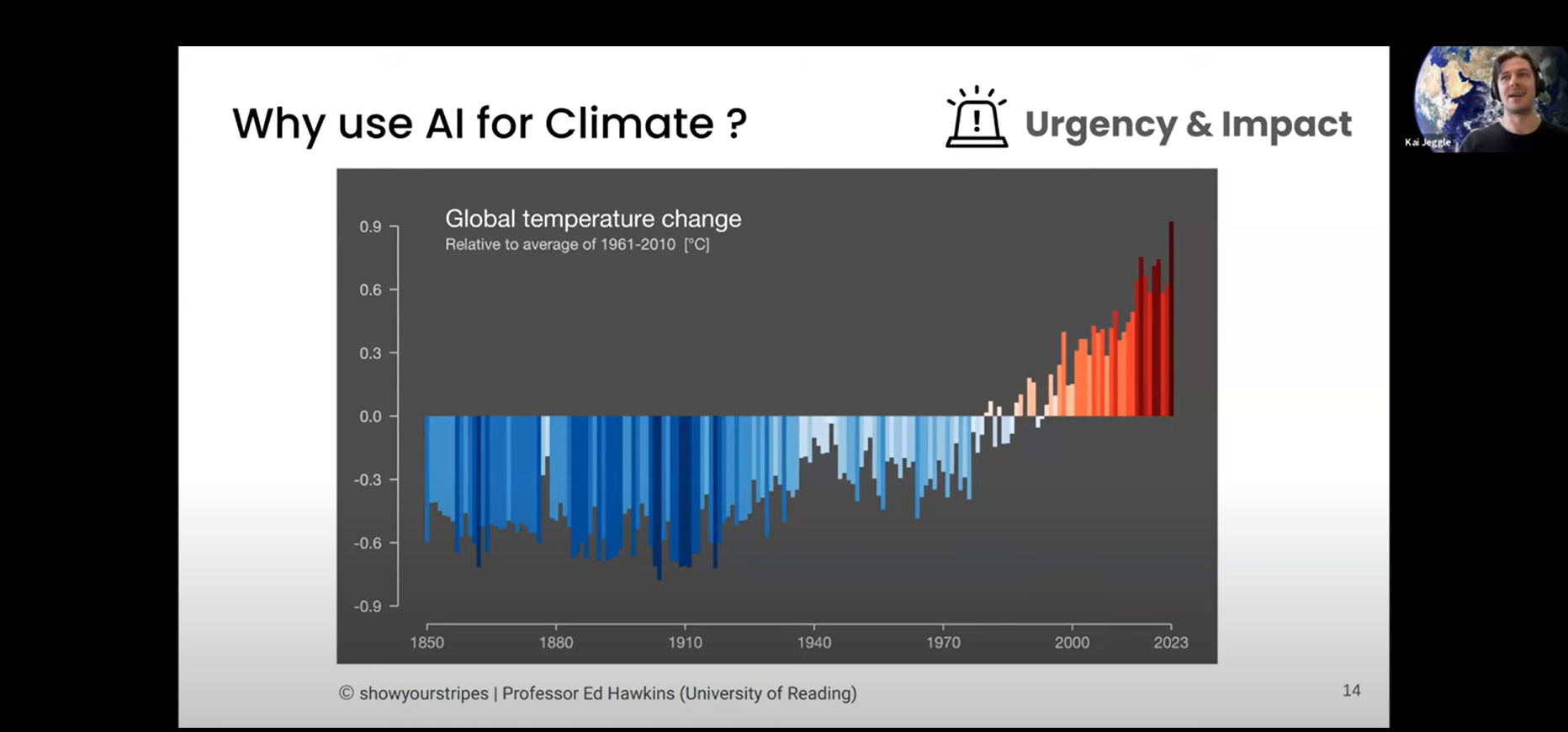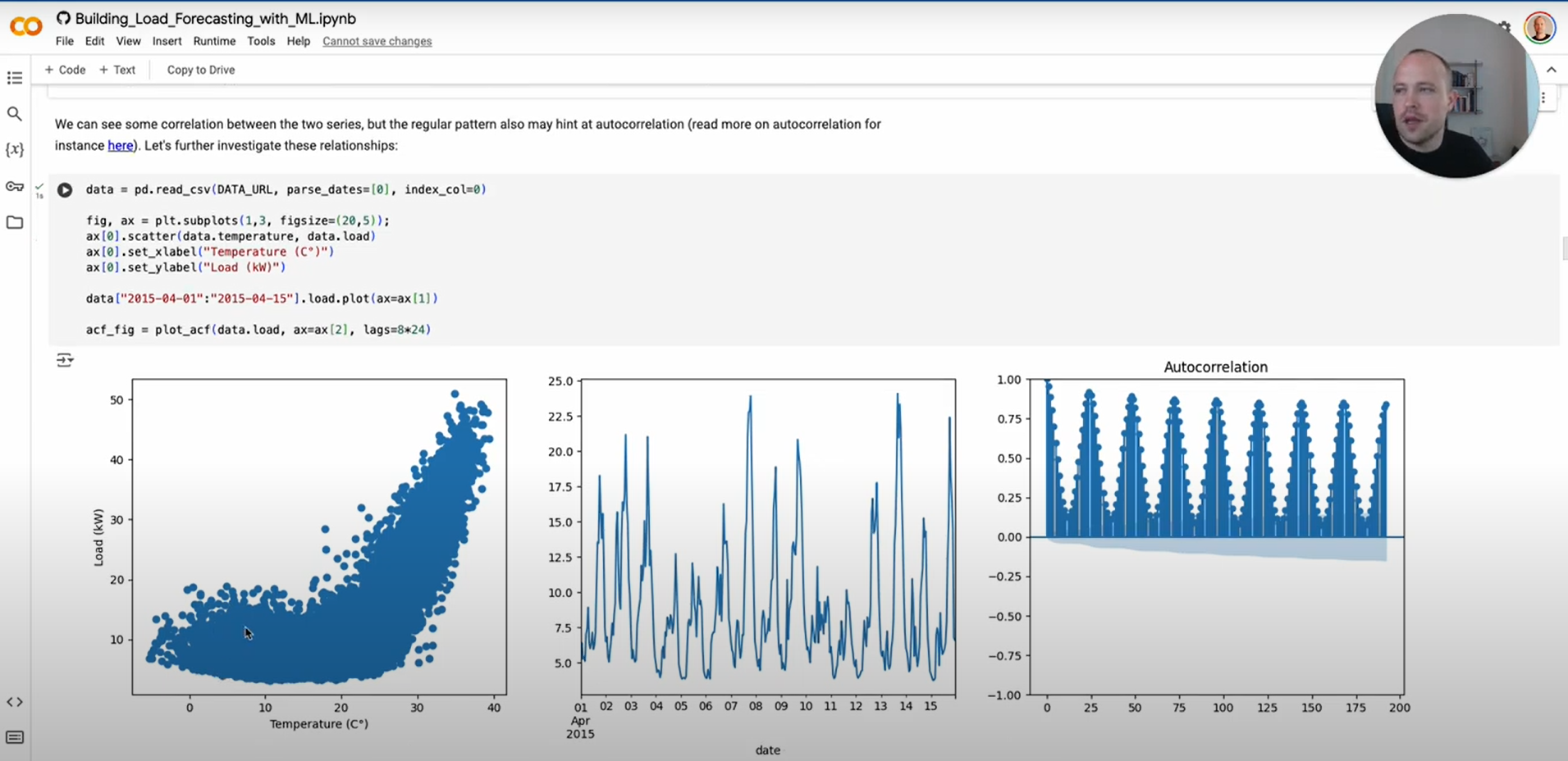The Virtual Climate Change AI Summer School: 2024 Recap
Find here the highlights and resources from CCAI’s flagship virtual educational program, and learn how to tackle climate change using machine learning.

This past summer, from June to August, thousands of virtual CCAI Summer School attendees from over 150 countries expanded their knowledge across a broad range of topics at the intersection of AI and climate change, engaging with over twenty hours of expert-led content, working on curated tutorials and interacting on the CCAI Community Platform. These materials are now publicly available on YouTube and other channels - find all the links on our website!
In August, we also hosted an in-person CCAI Summer School in Mila - Quebec AI Institute in Montreal, Canada. You can read about the highlights in this blog post.
The virtual CCAI Summer School aimed to democratize education at the intersection of climate change and machine learning by making high quality learning experiences accessible across the globe. To that end, the program could be completed from anywhere with internet access and allowed for both live and asynchronous participation. The program was targeted at both beginners and experienced professionals with backgrounds in either climate change related fields or machine learning, but not necessarily in both areas. To help those who had little to no machine learning experience, we developed a set of publicly accessible introductory learning materials that can be found here. Also, the lectures and tutorials were presented at varying levels of technical depth, so that every participant would be able to take something away from each session.
“There was such a fantastic breadth and depth to the topics covered, I honestly didn’t expect to deep dive into such discrete topics such as agriculture, transportation, buildings. etc.. I feel like being able to do that gave me such a better and wider look at AI then what we are currently seeing in the media/online. I liked that the topics weren’t surface level but very deep with specific examples and case studies”
– Anonymous Virtual Summer School Participant

The curriculum provided an introduction to the space by showcasing many different application areas and addressing overarching topics such as policy and impact assessment. The first day of the Summer School included lectures that covered introductory topics related to climate change, machine learning, and the intersection of these fields. From there, we dove into a variety of topics, including agriculture, climate science, ethics of AI, transportation, health, and more. Some lectures built upon others to provide more specific deep-dives, and some were accompanied by tutorials that provided a hands-on learning experience. For example, Dr. Kai Jeggle provided an overview of AI for climate science, which was followed by a lecture from Dr. Peetak Mitra specifically focused on the application of AI for weather. After the lectures, participants had the opportunity to apply the concepts from these lectures to a tutorial on forecasting El Niño with machine learning authored by Ankur Mahesh and Mel Hanna.

Even though this was a virtual program, there was plenty of opportunity for interaction. Participants engaged directly with experts in the live lecture Q&A sessions, and with each other through the CCAI Community Platform and social events.
“The program has bolstered my confidence in pursuing a career that intersects AI and climate change. The diverse range of topics and expert perspectives has reinforced my commitment to working in this impactful area.”
– Wasim Saeed Hasan Hezam, Virtual Summer School Participant
In addition to the lectures, attendees gained practical experience through the tutorials that accompanied most of the lectures. These hand-on materials address problems such as reducing the climate impact of training ML Models, modeling for bioacoustic monitoring, and using language models to analyse climate policy. The tutorials remain public after the end of the summer school, and provide an excellent opportunity to explore datasets, models and case-studies, and get hands-on experience with implementing ML models in this space. All the tutorials are available on the CCAI website.
All content from virtual Summer School is now accessible on our YouTube channel and the Summer School website.

